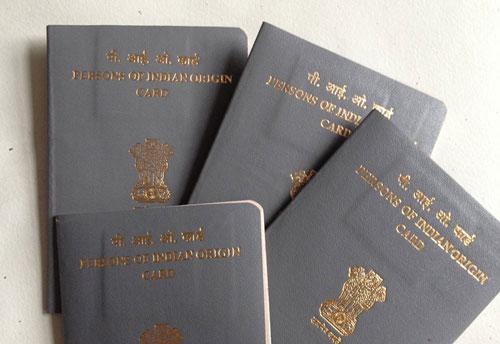I Have PIO Card. Is It Mandatory to Convert to OCI Card?

I have been living in
UK for a decade. But since my root lies in Ludhiana, Punjab, I frequently visit
to my birth place in India. I got PIO card issued for convenient and hurdle-free
visit there. Now, the Indian government has announced for converting it to
Overseas Citizen of India (OCI) card. I want to know if PIO card is still
valid. And, should I convert it to OCI mandatorily?
Who is a PIO?
PIO alias Person of Indian Origin are those whose roots are
in India. Despite residing in the foreign country, he/she is the one who
himself/herself or their forefathers was the citizen of India.
What are the benefits
that a PIO can enjoy in India?
Such cards are issued for the limited span of 15 years. According to rules, any married to Indian or foreigner whose heritage lies in India could apply for PIO card. What benefits such card holders can enjoy are stated below:
· They enjoy smooth & visa-free traveling across India from the foreign country for 15 years.
· They can stay for 180 days in India but the person cannot exceed his/her accommodation.
· If his/her accommodation exceeds the limit of days, the person must inform the local police regarding it officially.
Is PIO card banned?
In January 2015, the government has decided to stop the
facility of PIO cards. The announcement has spread confusions in the air. The
Indian diaspora is in dilemma over using this card. Those who have it they
panic that its use can land then behind the locks.
But there is no reason to be so fearful because this card is
still valid. It determines that the PIO card holders can use it until its
period of valid expires. Please note that the government has stopped issuing
new such cards. But the old cards are still valid to be used.
Indeed the advisory panel was set up to smoothen the
traveling of emigrants in India. Its report proposed for dismissal of PIO card.
In place of it, the panel recommended for reinstating the identical facilities
through OCI cards. However, PIO card is
different from OCI but latter is more useful and better in view of
facilitation.
Deadline to convert PIO
into OCI
In 2015, the declaration came in spotlight for conversion.
Persons of IO are caught up in confusion. Hazily, around 75,000 applications
were received for the conversion till last year. However, its timeframe for
merger was ended in December 2016. But since the count of such applicant is
likely to go up, that deadline was elongated till 30th June 2017.
It is done because:
- The applications are not going to
cease.
- The government wants to know the
correct figure of emigrants who enjoy PIO status.
- The OCIs can accommodate and work
till lifelong across the nation whereas PIOs have limited period of 15 years to
enjoy this benefit.
What to do for
conversion?
The applicant has to fill an application form for conversion
online or in-person at the consular office. By following the instructions, the
applicant can click the form from the official website. The very first step is
to get registered. Subsequently, the requisite instructions must be followed
while scanning picture, form and documents to be attached.
If the applicant wants to stay away from the hassles, they
can go for outsourcing various reliable outsourcers.
Which documents are to be attached with application for conversion?
- Copy of passport
- Copy of spouse’ passport
- PIO card
- Police registration
- Marriage certificate
- Husband’s birth certificate
- Photograph with light background
image
As far as the charges are concerned, the conversion service
is free.
Post Your Ad Here
Comments